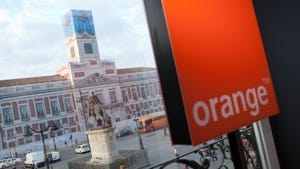EU public WiFi program has met strong enthusiasmEU public WiFi program has met strong enthusiasm
The EU’s third round call for tenders to build public wifi networks has received over 11,000 applications in one day from municipalities across the Union.
September 25, 2019

The EU’s third round call for tenders to build public wifi networks has received over 11,000 applications in one day from municipalities across the Union.
The latest round of the WiFi4EU programme, which has 1,780 ‘vouchers’ to offer, was over-subscribed by more than six times during the one day window. More than 2,000 municipalities and municipality groups sent in their applications within two seconds of the opening of the call on 19 September, the Innovation and Networks Executive Agency (INEA), the EU Commission’s executive agency in charge of implementing the WiFi4EUEU said in a statement. The winners would be selected on first-come first-served basis, but geographical distribution would also be considered. Each member state has a minimum guarantee of 15 vouchers and a maximum cap of 142.
WiFi4RU was designed to build free, high speed, and secure wifi connections to the internet in public spaces across the member states, for example in parks, squares, libraries, public buildings, for residents and visitors alike. The recipients of the ‘vouchers’, each of which is worth €15,000, will then choose their subcontractors to build the access network, not in duplication with other existing free public or private wifi networks. The municipalities should commit to provide free internet access for at least three years, including free from advertising.
The total budget for WiFi4EU is €120 million, which is handed out in batches. After the first two rounds of applications, which took place in November 2018 and April 2019, a total of 6,200 vouchers have been awarded, worth a total value of €93 million. With €26.7 million earmarked for the current round of applications, the budget is all but spent. However, the INEA announced there will be new opportunities to apply in 2020.
The public-funded free internet access will be welcomed by municipalities that receive large numbers of tourists, especially from outside the EU, to whom roaming charges would be high. It would also be good news for entrepreneurs or freelance workers that need to meet in small groups and work on their computers. Despite that 4G and even 5G connection is becoming more ubiquitous, very few computers, where heavy computing is being done, will be equipped with cellular connection in the near future. Public libraries, for example, would become ideal places for such meetings. It is already a common practice in places like Finland’s public libraries.
The programme will be a small negative for some ‘start-up incubators’, which are barely more than a place that leases a work desk and a high speed internet connection. It may even be a minor negative for places like the coffee shops, where many individual entrepreneurs would go for the internet connection, at the price of a coffee.
In 2016, the European Union published its digital vision, titled “Connectivity for a Competitive Digital Single Market – Towards a European Gigabit Society”, by which it aimed to achieve internet access downlink speeds for all European households of at least 100 Mbps. The current WiFi4EU program is a good complement for the out-of-home environment, despite that there is no speed guarantee.
About the Author
You May Also Like










.png?width=300&auto=webp&quality=80&disable=upscale)


_1.jpg?width=300&auto=webp&quality=80&disable=upscale)